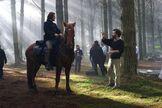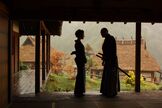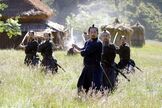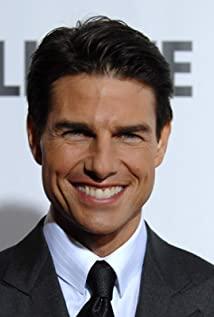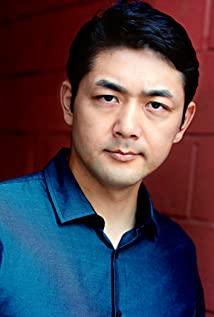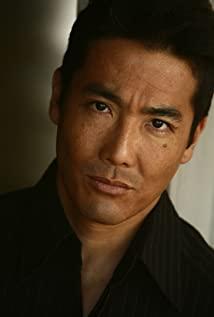The prototypes of General Katsumoto and Minister Omura in the film are basically clear, namely Saigo Takamori and Okubo Toshitsu. But about the prototype of the protagonist Nathan Algrand, more people believe that this is just an original character. Not long ago, I saw the relevant content on the Japanese history website, and I translated the full text along the way. The content is for reference only. Please point out any errors.
When it comes to "international exchanges", ordinary people feel that it is probably a matter of the past few decades! To be more precise, start from the time when you can travel overseas!
However, when it comes to small-scale exchanges at the national level and the relationship between the two, it actually already exists. From the end of the Tokugawa period to the Meiji period, Japan and many countries began to communicate in many ways.
This time, I will introduce a person from a certain country who has something to do with Japan at the end of the Tokugawa period during the Boshin War.
On August 12, 1911 (Meiji 14), French soldier Jules Brunet died.
Jules is believed to be the prototype character for Nathan Algrand (played by Tom Cruise), the protagonist of the film The Last Samurai. But in reality, he lived a very different life than in the film.
Probably the prototype mentioned here is more about the level of "image reference" than the meaning of "very similar"!
Traveled to Japan as a military advisor by order of Napoleon III
On January 2, 1838, Jules was born in Belfort, a city close to the Swiss border in eastern France.
Jules' father was a veterinarian for the Dragoons. The "dragon cavalry" here actually refers to the soldiers who attacked with iron guns while riding on horses. By the way, when translated into English, it is the handsome name "dragoon". In Japanese fantasy novels, the knights who are literally associated with dragons are called "dragoon" and "dragoon"!
Because dragon riders must use horses, it is especially necessary to take care of horses and master veterinary medicine. So Jules also heard a lot about army horses and stories from the battlefield from his father.
Jules joined the French army after graduating from engineering school and army school.
Jules won the military exploits, made a fortune, and also won the French Legion of Honor (the highest honor awarded by the French government). At this time, Jules's image is probably "a poor, but young and outstanding soldier".
At this time, the French Emperor Napoleon III was thinking about having a stronghold in the East. Based on what Wenjiu envoys sent to Europe before, it seems that Japan is a good choice. Just sell your favor to Japan in the name of military guidance!
So, Napoleon III ordered Jules and his party to go to Japan as a military advisor.
A year before the outbreak of the Boshin War, the shogunate at this time in Japan was also full of energy.
The head of the military advisory group at the time was Charles Chanoine.
There are five subordinate non-commissioned officers, including Jules, who are experts in various military aspects. Jules has extensive experience in artillery, serving as the head of artillery education.
In this way, Jules and his bosses came all the way to Japan at that time. It was the beginning of 1867. That is, the year before the outbreak of the Boshin War.
The shogunate provided an environment for the soldiers to learn French, and overall they were very motivated.
Jules quickly plunged into the training of the shogunate army. After only three months, Charles sorted out the current problems and improvement methods, and wrote a construction white paper. It can be seen that the French soldiers at that time were eager to perform their tasks in other countries.
After the military advisory group visited Tokugawa Keiji, according to this white paper, the shogunate army carried out drastic reforms and transformed the army into a Western-style army.
You can still see photos of the celebration dressed in French military uniforms at that time. This is also the proof of that period of history!
However, even the shogunate army, which Jules and his party worked hard to train, suffered a series of defeats at the beginning of the Boshin War. France itself also sent an order for them to return home immediately.
Determined to stay in Japan and go to the Hakodate War with Enomoto Takeyo
However, perhaps it was the year they lived in Japan that allowed Jules and his party to inject their feelings into this country, or perhaps it was their sense of responsibility, or both, Jules and the others decided to stay in Japan. They submitted an application for retirement to France and wrote to Charles several times.
Then, they participated in the masquerade party held at the Italian embassy dressed as samurai, took the opportunity to escape with his subordinate Andre Cazeneuve, and joined Takeyo Enomoto and joined the Hakodate War.
If this is the case, Jules and the others may have had contact with Hijikata Toshizo. Although it is not clear whether Jules can speak Japanese, at least Enomoto has learned English and Dutch, so no matter what language Jules speaks, Enomoto may act as his translator.
In this way, even if Jules resigned as a French soldier, he still actively assisted the shogunate army, but in June 1869, Goryokaku was captured by the new government army, and Jules also decided to surrender together with Enomoto.
On June 20, Jules left Japan.
After returning to France, after several years in the reserves, Jules returned to the Army after being reactivated in the Franco-Prussian War of 1870. It seems that the trick of submitting documents seriously is very effective!
In the future Sino-Japanese War (called the Sino-Japanese War in the Chinese side), he was awarded a medal by Japan for his contribution to Japan. At the same time, he often took care of Japanese army soldiers who came to study in France, and his contact with Japan has since been It has also continued.
Eugene Collache, who fled the French army for the Hakodate War
Andre Cazeneuve, who escaped with Jules, came to Japan again in the Meiji era and proposed to the Meiji government to improve the military horse.
Before the Boshin War, Napoleon III presented Arabian horses (a kind of ancestor of thoroughbred horses) to the shogunate. But after the war, no trace was found, so Andre was ordered to search for the horses.
While traveling around the Northeast in search of horses, Andre fell ill in 1874, and is said to have died in Namie, Fukushima Prefecture.
There are also several French soldiers who joined the Shogunate by other means, not in the name of military advisers. Among them, you can see the clear footprints of Eugene Collache, which belongs to the French Navy.
When the warship of the French fleet he was on was moored in Yokohama, Eugene heard the outbreak of the Boshin War, and fled with his friends and went to Hakodate with Jules... From this point of view, this is really a promising young man with big ambitions. what!
So, just when he was thinking about training the navy to fight against the new government army, he lost the largest warship of the Shogunate, the Kaiyo Maru, due to an accident. Therefore, he came up with the adventurous and radical idea of "silently infiltrating the army of the new government and taking over the warships of the new government".
Although they waited until the ships of the new government forces were docked in Miyako Bay before taking action, this daring battle plan failed in the end. Instead, they lost their own warships and caused casualties. In the end, they had to surrender like this.
Unlike Jules, who also surrendered to the new government army, Eugene was convicted and sentenced to death for trying to seize the warship that controlled the new government army. Perhaps to avoid a bad relationship with France, the new government immediately released Eugene.
It has since returned to mainland France. Unlike Jules, Eugene didn't communicate the decision to retire to his country's military, and he was fired from the military all of a sudden.
However, after the buzz of the matter passed, Eugene joined the Army during the Franco-Prussian War. As for why it wasn't the navy he originally belonged to, there must be some grudges or other problems!
Maybe it's just because the army is understaffed.
Link to the original text: The movie ラストサムライのモデル "ジュール・ブリュネ", the end of the curtain, the soldier たちが Hot い!
View more about The Last Samurai reviews



